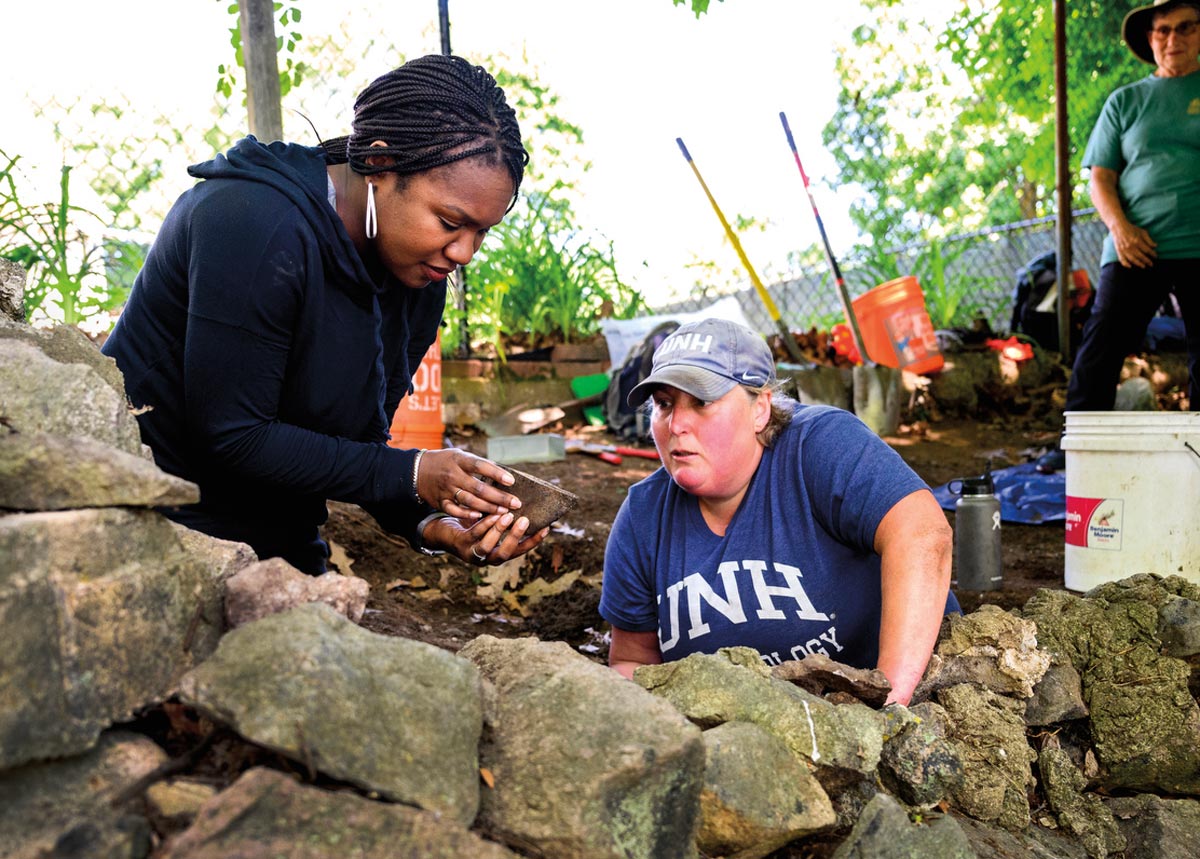
A Dig Fit for a King
Meghan Howey, professor of anthropology and director of the University of New Hampshire’s Center for the Humanities, collaborated with historian Kabria Baumgartner, who taught at UNH from 2017-21 and who is now a dean’s associate professor of history and Africana studies at Northeastern University.
Pompey Mansfield lived at the homestead on the banks of the Saugus River with his wife Phylis (or possibly named Phebe) more than 260 years ago. Historical accounts portray him as a prominent community leader who bought land and built a stone house in Lynn, Massachusetts. It was there that he hosted free and enslaved Blacks from the region on “Black Election Day,” one of the most important days in the Colonial era for Black people in New England, and it was also where Pompey was elected king on an annual basis.
To pinpoint the location, the archaeological team, which included archaeologist Alyssa Moreau ’21 and community historian Diane Fiske with UNH’s Great Bay Archaeological Survey, spent months poring over public records, deeds and genealogical records. They compared historical maps with contemporary Light Detecting and Ranging-derived (LiDAR) topographic maps and cross-referenced them with probate records and historical newspapers to identify specific landmarks and narrow down the area.
In a trench that was four feet deep, the team dug through layers of several different eras of newer foundations covering the 1700s structure to reveal a foundation construction of river rocks as described in the documentation.
Researchers hope they can work with the National Park Service to establish a historical marker about King Pompey and do more outreach and exhibits that share the story of Black Election Day.